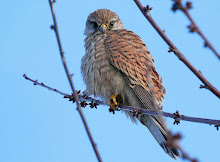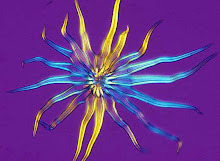I need to thank my former colleague Professor Stephen Willis, in the Biosciences department at Durham University, for giving me the location of these collared earthstars Geastrum triplex. I had never seen an earthstar before today and never expected to see them in Country Durham, where they are rarities.
These were growing under an ash tree.
Earthstars have a similar method of raindrop-impact spore dispersal to puff-balls, although it seems that they are not closely related. When raindrops fall on the thin inner coat (endoperidium) the impact sends a puff of spore-laden air out of the pore and into the air stream. Before this can happen the thick outer coat (exoperidium) splits into segments and bends outwards and backwards, forming a star-shaped collar that raises the whole fungus higher into the air stream - a particularly valuable attribute when it is growing amongst a ground layer of ivy, as it was in this case. Once they are no longer attached to the soil they can also blow across the ground on windy days, shedding spores as they go.
Sunday, January 6, 2019
Subscribe to:
Comments (Atom)



























